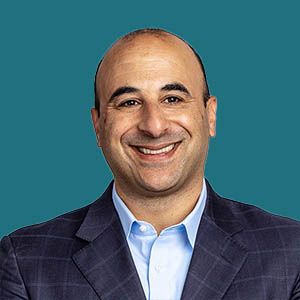Epilepsy Cell Therapy NRTX-1001 May Eventually Be Evaluated for Alzheimer Disease
Cory R. Nicholas, PhD, the cofounder and CEO of Neurona Therapeutics, discussed future plans for the expanded applications of the allogeneic regenerative neural cell therapy.
Cory R. Nicholas, PhD

This is the third part of an interview with Cory R. Nicholas, PhD. For the first part, click here.
Neurona Therapeutics’ allogeneic regenerative neural cell therapy, NRTX-1001, is currently only cleared by the FDA for investigational use in mesial temporal lobe epilepsy. As such, patients with other forms of epilepsy are unable to participate in the first-in-human phase 1/2 clinical trial (NCT05135091). Although, the company has plans to eventually evaluate NRTX-1001 in other epilepsy indications in future clinical trials, pending regulatory clearance.
In December 2023, following the presentation of data from the trial at the Annual Meeting of the American Epilepsy Society (AES), held December 1-5, 2023, in Orlando, Florida, CGTLive™ interviewed Cory R. Nicholas, PhD, the cofounder and CEO of Neurona Therapeutics, about challenges in the trial and future plans for the cell therapy product. Nicholas spoke potential future trials that could include patients with bilateral temporal lobe epilepsy, focal cortical dysplasias, and even Alzheimer disease that has epileptic-type activity.
CGTLive: Have there been any challenges or limitations in the trial so far, or are there any plans for future study that you can discuss?
Cory R. Nicholas, PhD: I think the main challenges and limitations are that this therapy is not approved for investigative use in all subjects; it has to be people that have the seizures coming from 1 temporal lobe. We've had requests from clinicians and their patients to enroll in thispart of the study, but unfortunately their seizures may come from other parts of the brain where we're not yet approved to treat or the seizures may be coming from both sides of the brain, and it's not yet approved for that type of investigation. That's been a bit frustrating because we would like to provide this for all that would stand to benefit. But of course, it's the first-in-human trial, so we’re going stepwise and with safety in mind we’re proceeding cautiously.
But we are planning next year to start studies—pending FDA review and clearance, of course—where we would launch a couple of additional trials: one for people that have temporal lobe epilepsy on both sides of the brain, which is called bilateral temporal lobe epilepsy, and the other for people that have seizures coming from a single area of the neocortex; for example, in people (both adults and children) that have focal cortical dysplasias that result in malformations of the brain and seizures that sometimes cannot be surgically managed with a lobectomy or laser, but for whom the cell therapy may be worth a try. So we're hoping to be able to provide the cell therapy NRTX-1001 to a broader population in the future.
Is there anything else not covered by the above questions that you would like to share with our audience of doctors and healthcare professionals?
Well we're always expanding the number of clinical sites for the trial. We're rapidly recruiting centers across the United States. This would be a National Association of Epilepsy Center (NAEC) that's an accredited level 4 center that's capable of imaging guided neurosurgery because the cell therapy is delivered under intraoperative MRI guidance (or intraoperative CT guidance in the future). We are actively recruiting level 4 NAEC centers. So if there are clinicians and centers out there that would like to join the study, we encourage you to reach out and we can explore that. And, of course, the trial is recruiting so if folks have patients that are currently at one of our active centers, or close to a center, you can find the information about the centers that are currently active on the clinical trials.gov website. Other than that, we're excited to offer the therapy at the higher dose level now to an additional group of patients and hope that the positive data continue and that the therapy continues to be safe and continues to make a positive impact on patients and their families, as we've seen with the first couple of patients.
I guess one other point is that we are interested (not this coming year, but in years to come) in potentially starting a trial where we would examine this therapy for people with Alzheimer disease. There's an interesting body of literature that's emerged with clinical evidence that a subset of people with Alzheimer disease have epileptic-type activity in the same temporal lobe area of the brain. We would be very interested in the future—if this therapy proves safe for epilepsy—to offer this to people who have the epileptic-type hyperactivity of their neural circuits in this part of the brain on a background of Alzheimer disease to see if we could, in much the same way we're doing for our epilepsy patients stopping their seizures, allowing that part of the brain to function again and to form memories again. [We want to see] if we can potentially have the same benefit in people with Alzheimer disease that have an epileptic pathophysiology, where we can control the activity and allow the hippocampus to form memories again. That’s a plan for a future trial that we are actively pursuing at Neurona and hope to provide more information on in the years to come.
This transcript has been edited for clarity.
REFERENCES
1. Neurona Therapeutics presents new clinical data from first cohort in ongoing phase I/II open-label trial of NRTX-1001 cell therapy for drug-resistant mesial temporal lobe epilepsy (MTLE). News release. Neurona Therapeutics. December 1, 2023. Accessed January 28, 2024. https://www.neuronatherapeutics.com/news/press-releases/120123/
The CAR-T Versus Bispecific Antibody Debate in Third Line LBCL
April 26th 2024Emilie Aschenbrenner, PharmD, BCOP, a hematology coordinator for pharmacy at Froedtert and the Medical College of Wisconsin, discussed the advantages of each of the 2 modalities in the third and second line settings.